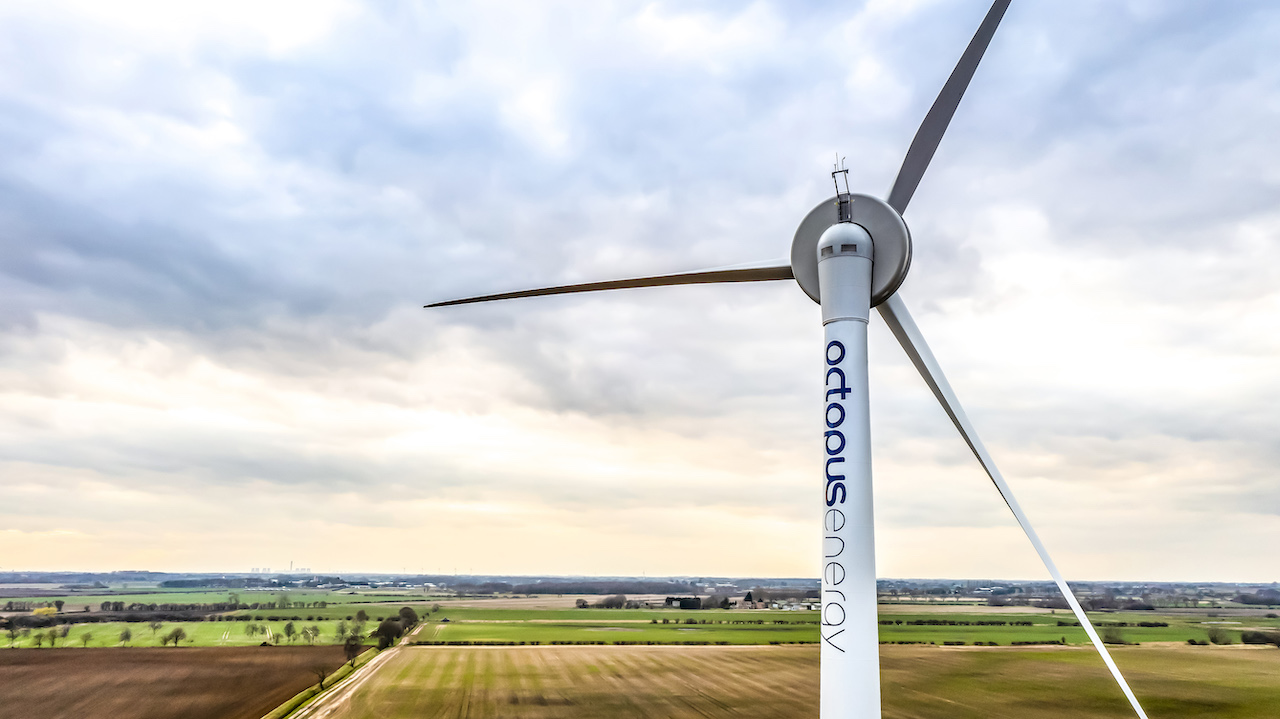Winder, retailer Octopus’s social app seeking new homes for onshore turbines, reckons it has discovered willing host communities offering new generating sites equivalent in output to a nuclear power station.
Localities voicing support via the app for onshore turbines could together provide 2.3GW of home-grown clean electricity for 1.85 million homes, according to Octopus. That equals the populations of Birmingham and Manchester combined.
Winder – named in echo of dating app Tinder – is the company’s refinement to accelerate the technology. The platform matches available land with community support, wind data & grid capacity. Sites in AONBs, areas of outstanding natural beauty, are excluded.
Building turbines in England & Wales where people say they want them, is the objective of the generator-retailer’s lobbying research.
Today’s release comes amid signs that leading Conservatives, including two recent prime ministers, are set this week to defy premier Rishi Sunak in Parliament, by voting to lift the party’s seven year embargo on new wind farms in England.
Liz Truss and her immediate predecessor, the first British premier guilty of a crime while in office, plus former party chair Sir Jake Berry were reported at the weekend to be uniting in resistance to Sunak’s continuing ban.
New turbines in British & Welsh landscapes have been greatly restricted since 2015, when David Cameron bowed to sustained pressure from shire Tories, marshalled by Leicestershire MP Chris Heaton-Harris, now Northern Ireland secretary.
Octopus’ lobbying for turbine sites among willing communities came first through its ‘Fan Club’ scheme. According to the firm, the club attracted more than 15,000 requests from individuals in less than two years. Steep discounts in tariffs are the firm’s lure to post-codes expressing interest in at least one spinning post.
Rivalled only by solar in its low capital cost, onshore wind is consistently backed by the British public, particularly when linked to discounts offered for hosting farms.
In September pollsters YouGov recorded that 87% of British homes would support wind generation in their community, if offered cheaper tariffs.
Trade advocates RenewableUK reported at the same time a project pipeline for onshore wind standing at 37 GW, nearly four-fifths of it in Scotland.
According to the lobbyists, building turbines at every identified location would in theory unlock £3.4bn in investment, creating high-quality green jobs.
“This energy crisis is caused by Britain’s dependence on gas”, argued Zoisa North-Bond, CEO of Octopus Energy Generation:
“To make sure we never find ourselves in the same position again, we need to build more cheap, green energy – and quickly.
“The current system means it takes seven years on average to build and connect a new onshore wind turbine – but it’s possible to build it in a year.
“Winder shows we can massively speed up this process and make a difference by next winter”, promised the Octopus boss.





The UK needs all the renewable electricity that it can get, but at present domestic energy charges reveal that electricity is charged at around 3.5 times the cost of gas in kWh, which is absurd when electricity from gas powered power stations is only about 45% of all electricity generation. The differential between gas and electricity prices needs to be gradually reduced to at least parity.
While more onshore wind power is one possibility to increase green electricity generation, offshore wind turbines can be made much larger and therefore generate more power. And ocean current power has a big potential around the UK and runs 24/7 so can be seen as baseline power, but it is under developed in spite of having successful companies that have developed floating turbines that are at least as powerful as the largest offshore turbines.